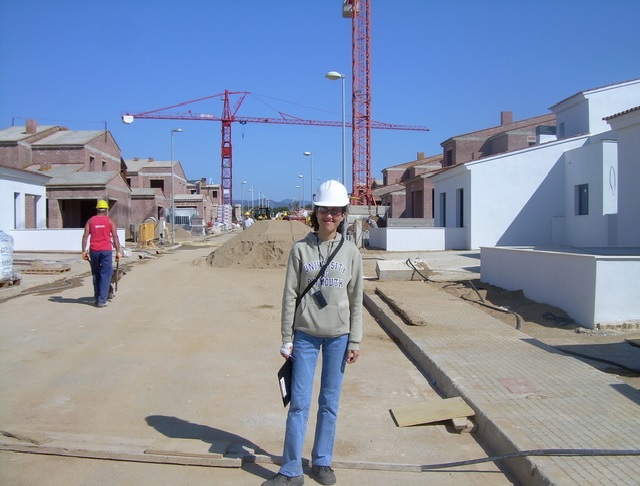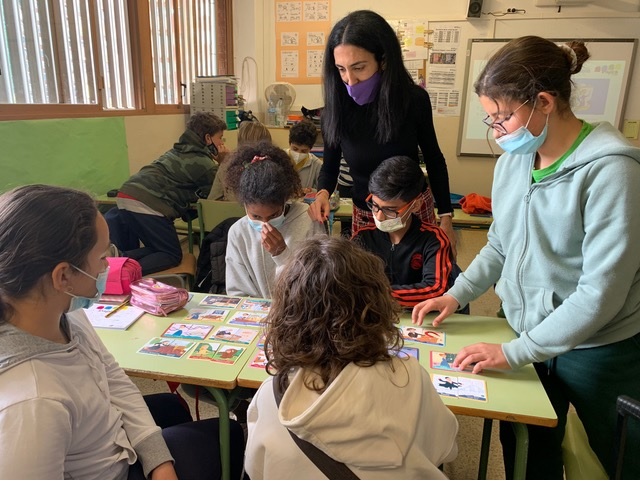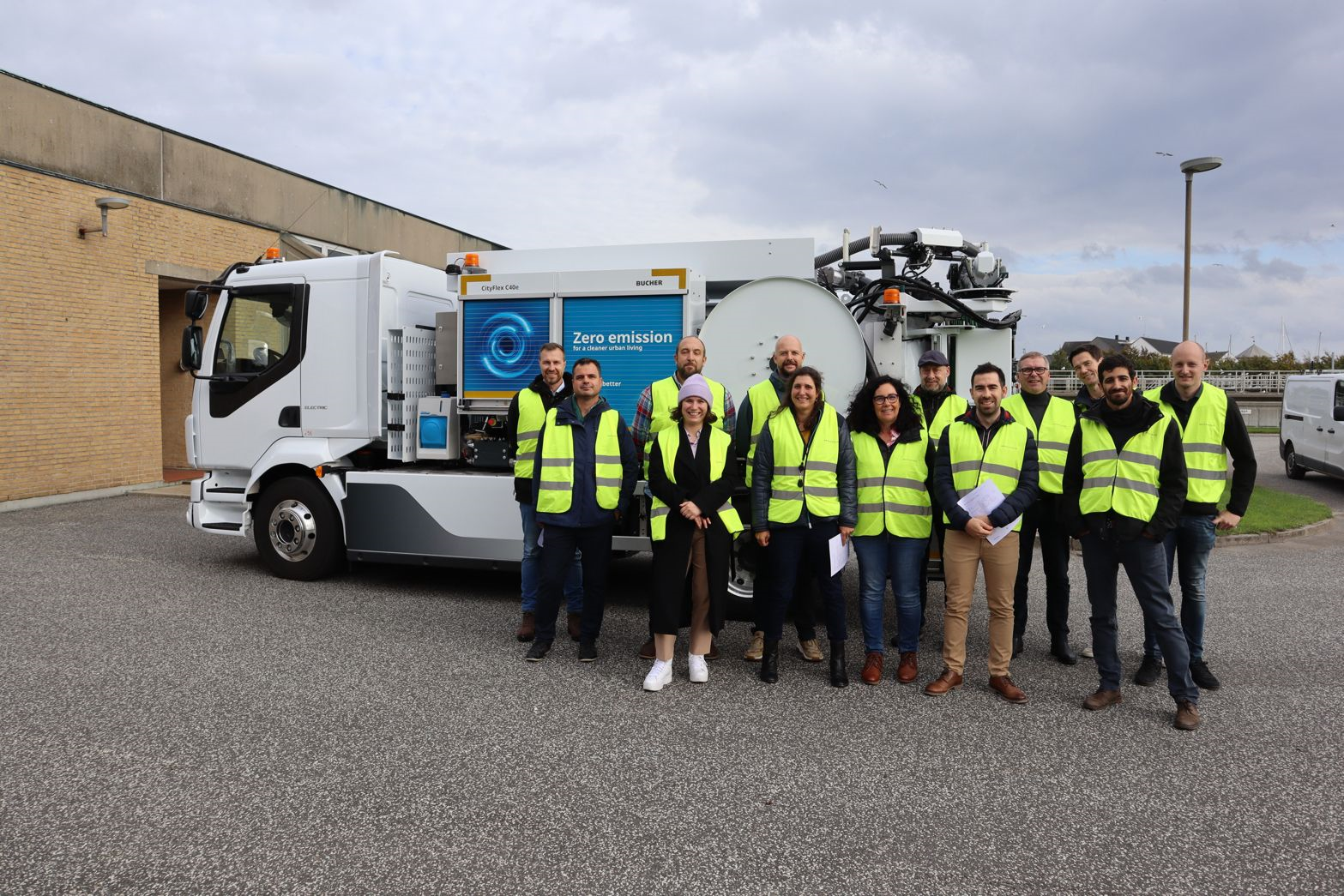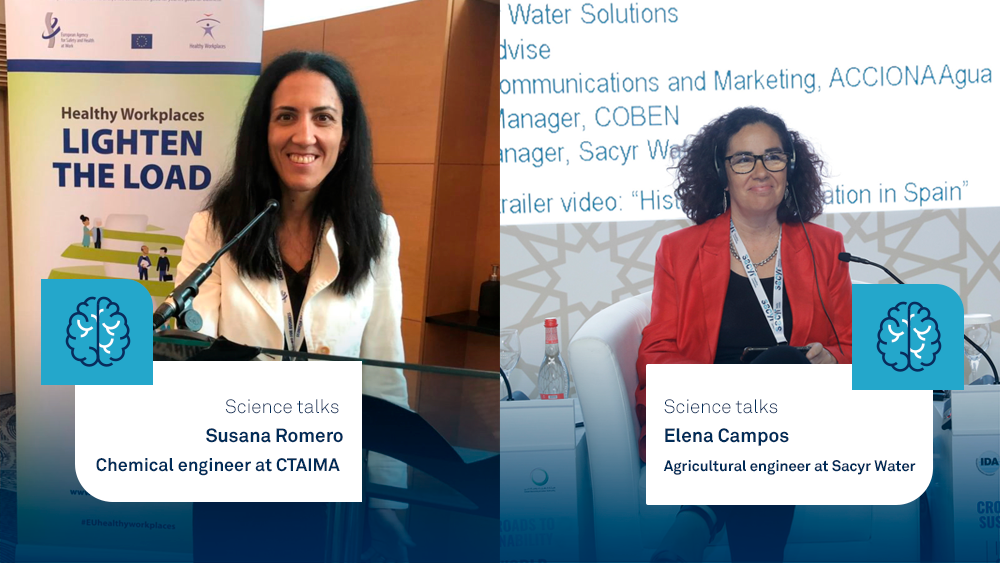The word "overcoming" has guided Susana Romero's life since she was born. Because she was born and had to live with a rare disease, because she wanted to play with toys meant for boys, for being a woman, a mother, and an engineer. She wasn’t surprised by the glass ceiling in her profession, but she has had to overcome it and suffer it.
Currently, Susana Romero, a Chemical Engineer with a master’s degree in Occupational Risk Prevention, is a marketing executive and HSEQ Manager at CTAIMA. At her job, she builds safe and sustainable work environments in digital transformation and change management projects with international reach.
In addition, she is a member of the Association of Women Researchers and Technologists (AMIT), MulleresTech, and a mentor for InspiraSTEAM. She advises students and entrepreneurs in areas of engineering, technology, health, and safety, as well as in digitization and change management projects.

Susana's childhood was complicated, as much of it was spent in hospitals. From the waiting rooms and her bubble room, she dreamed of inventing and designing machines like the ones she was wired to cure other children.
Her being different than other kids, her desire to play with different toys, and her passion for mathematics and physics led her to study engineering.
"In high school, in 1995, I went to a computer workshop, that was the weirdest thing in the world, I was the only girl," she explains. My surroundings, in an innocent way, called me "weirdo" or "tomboy" because I liked boy things. I didn’t let those comments get to me," says Romero.
When Susana studied in Engineering school in 2000, there were 5-10 girls per class, less than 10% (there were more girls in her chemistry discipline), and the teaching staff was mostly men.
Something that already happened in the scientific branch she chose. On a few occasions, she had a female teacher in the subjects of analytical and inorganic chemistry.
"Thanks to my 8-year-old daughter, I started noticing the biases in society, the great work that still needs to be done to break barriers, empower girls, and ultimately build a more equal and diverse society," explains Susana.

Since she became a mother, she taught her daughter to not discard science and technology. Through workshops, robotics classes, teaching her presentations on the computer, etc. "She got a scientist Barbie as a gift. The doll wore a lab coat that reached above her knees and a pearl necklace. It’s not a reflection of reality," says the engineer.
Her career focuses on occupational risk prevention, and she has leaned how most jobs are designed for men, from workwear to factory machines, prevention equipment, bulletproof vests for female police officers that are not adapted to them, etc.
"I work in a tech company, and it is very difficult to find tech-oriented women profiles. Tech, just as languages and other skills, should be taken into account in educational communities. There is a significant gap there", she says.
90% of tech products are designed by men, while 80% of consumption is influenced by women.
Susana gives talks at institutes and explains the commitment we have with nature, she talks about engineering, salary and gender gaps, and digitization.
An Engineer at Sacyr
Elena Campos-Pozuelo, a PhD in Agricultural Engineering, is the coordinator responsible for technical support processes in the technical area of Sacyr Agua. She holds three national patents and has published over 50 scientific articles, book chapters, technical journals, and presentations at international and national congresses.
"Personally, I have never felt discriminated against for being a woman in science. When I chose my degree, there were almost more women than men in my promotion. My parents encouraged me to study what I wanted to. I was good at mathematics and physics, and I was attracted to engineering, that's why I went into it", explains Elena.
From the perspective of a Sacyr worker, she explains that the group has evolved over the years. "Back when I joined in 2006, it was a bit more patriarchal, although personally I have never felt discriminated against for being a woman, there may have been a bias that favored the promotion of men over that of women. If I think it has evolved and the company is certainly increasingly equal, with a larger number of women in positions of responsibility," says Elena.

According to UNESCO data (between 2014 and 2016), only around 30% of all students chose higher education within the STEM field. Worldwide, female student enrollment is particularly low in the field of information and communication technology (ICT), with 3%, natural sciences, mathematics and statistics, with 5%, and engineering, manufacturing, and construction, with 8%.
"I don't know why girls don't choose this type of career. There are fewer and fewer women going into technical studies, and especially engineering. I think it's more due to the loss of social prestige of this profession. Women who go into sciences are more attracted to health sciences. Maybe it's because doctors are socially valued more than engineers," explains Campos.
